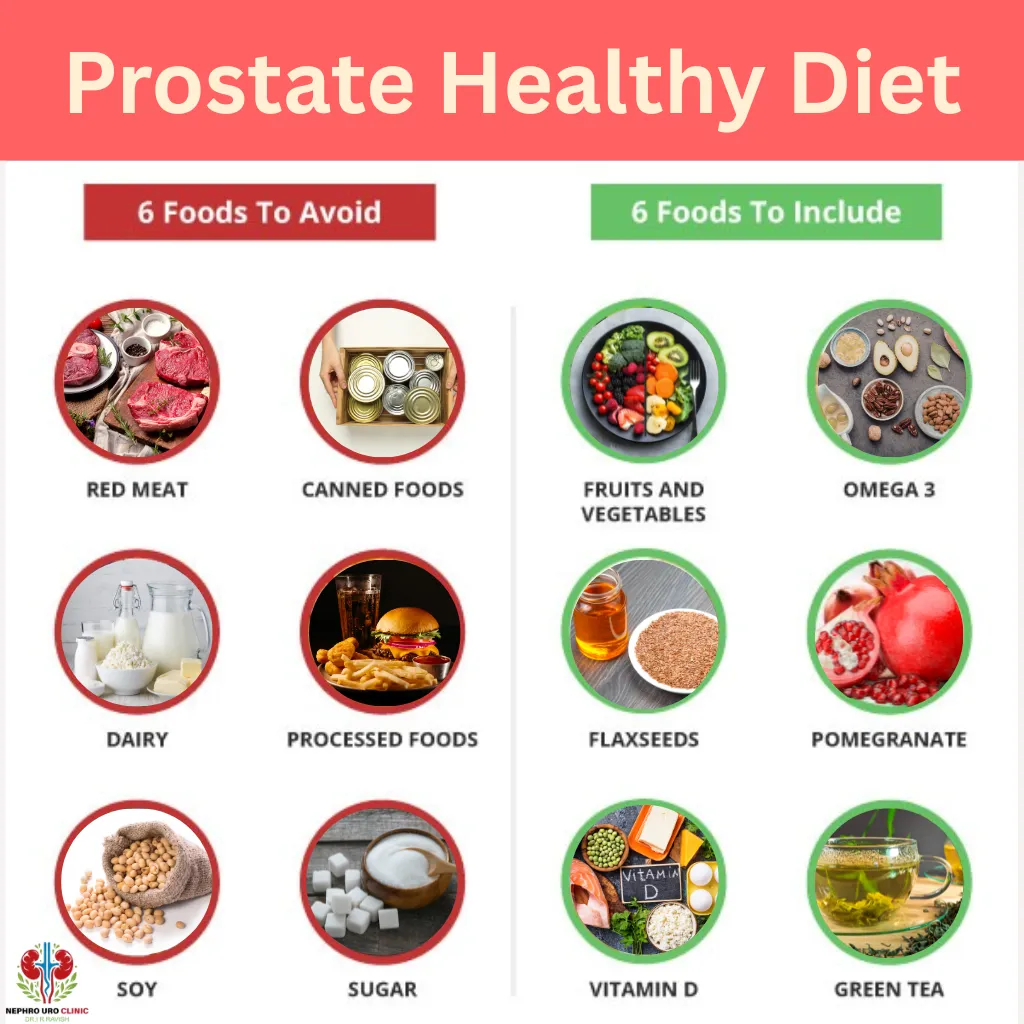Food supplement for prostate health are an important part of a man’s wellness routine, especially after the age of 40. Many men face prostate issues like frequent urination, discomfort, or even prostate enlargement. Luckily, a mix of natural foods, herbs, and supplements can help. This blog will guide you through everything you need to know to protect your prostate using simple and natural methods.
What Supplements Are Used for Prostate Health?
Men often ask, “What should I take for my prostate?” The answer is a combination of natural ingredients that support prostate function and reduce swelling. Some supplements combine plant extracts, antioxidants, and minerals like zinc and selenium. These supplements work best when taken daily and with healthy habits like eating natural foods for prostate health. Be sure to choose high-quality products without added fillers or chemicals.
Prostate Health Nutrients
Certain nutrients are key for a healthy prostate. They help reduce inflammation, support hormones, and may even prevent prostate cancer. These nutrients are found in both food and supplements. Including them in your diet can be simple. Eat whole foods and consider using a food supplement for prostate health to get extra support.
Selenium
- Selenium is a strong antioxidant that protects cells from damage.
- It may lower the risk of prostate cancer.
- Found in Brazil nuts, eggs, and tuna.
- Also found in most food supplements for prostate health.
Zinc
- Zinc supports the immune system and helps maintain hormone levels.
- A deficiency in zinc is often linked to prostate issues.
- Found in pumpkin seeds, seafood, and fortified cereals.
- A common ingredient in supplements for the prostate.
Lycopene
- Lycopene is a red pigment found in tomatoes.
- It has antioxidant power that protects prostate cells.
- Cooked tomatoes, like in sauces or soups, are best.
- Lycopene is one of the best foods to eat for prostate health.
Green Tea
- Green tea is rich in antioxidants called catechins.
- These can slow the growth of harmful cells in the prostate.
- Drinking green tea or using green tea extract helps.
- It’s both a food supplement for prostate health and a top drink for prostate health.
Modified Citrus Pectin
- This is taken from citrus fruit peels and turned into a supplement.
- It may slow the spread of bad cells and help with prostate swelling.
- Often added to herbal blends or prostate health capsules.
- Useful when combined with foods for a healthy prostate.
Vitamin D
- Vitamin D supports the immune system and cell health.
- Low levels of Vitamin D have been linked to prostate cancer.
- Get it from sunlight, fatty fish, and supplements.
- Some food supplements for prostate health include this vitamin to improve results.
Soy
- Soy is rich in isoflavones, which are natural plant hormones.
- These can help balance male hormones and reduce prostate risk.
- Found in tofu, soy milk, and edamame.
- It’s one of the best natural foods for prostate health and should be part of your weekly diet.

Prostate Health Herbs
Herbs have been used for generations to support prostate health. These plants are natural and usually come with fewer side effects. They are often found in capsules or tablets designed as food supplements for prostate health. Some of these herbs can also be found in teas or powders. Let’s look at a few of the best ones.
Saw Palmetto
- Saw Palmetto is the most popular herb for prostate problems.
- It helps reduce the size of an enlarged prostate.
- Improves urine flow and reduces nighttime bathroom trips.
- Found in almost every prostate supplement.
African Cherry (Pygeum)
- Taken from the bark of the African plum tree.
- Helps reduce swelling and ease urine flow.
- Works well with other herbs like Saw Palmetto.
- Popular in Europe and growing in use worldwide.
Rye Grass Pollen Extract
- Made from the pollen of rye, timothy, and corn grass.
- Reduces inflammation and helps relieve pain or discomfort.
- Known to improve quality of life for men with prostate trouble.
- Found in some of the most effective food supplements for prostate health.
Other Considerations for Prostate Health
Movement/Exercise
Engaging in regular physical activity is one of the most effective ways to support prostate health. Moderate exercise can help reduce inflammation, improve hormonal balance, and enhance immune function, all of which contribute to maintaining a healthy prostate.
- Aerobic Exercises: Walking briskly, cycling, and swimming increase heart rate and circulation, which can help reduce the risk of prostate enlargement. These activities also assist in weight management—a key factor since obesity has been linked to an increased risk of prostate issues.
- Strength Training: Incorporating resistance workouts at least two times a week can improve muscle tone and boost metabolism. Men with higher muscle mass often experience better hormonal regulation, which may protect the prostate from abnormal growth.
- Pelvic Floor Exercises: Also known as Kegel exercises, these strengthen the muscles of the pelvic region and may help in managing urinary symptoms often associated with prostate conditions. Practicing these consistently can improve bladder control and urinary flow.
Regular movement also indirectly influences dietary benefits, as active individuals often have better digestion and nutrient absorption—enhancing the effects of natural foods for prostate health and any food supplement for prostate health they consume.
Nutrition
Diet plays a central role in prostate function. A well-balanced nutritional approach can help prevent inflammation, support cellular repair, and reduce the risk of prostate enlargement and prostate cancer.
- Tomatoes & Cooked Tomatoes: Rich in lycopene, tomatoes are among the most studied foods for a healthy prostate. Lycopene is a powerful antioxidant that may lower the risk of prostate cancer when consumed regularly, especially in cooked forms like tomato sauce or paste.
- Cruciferous Vegetables: Broccoli, cauliflower, and Brussels sprouts contain sulforaphane—a compound shown to selectively target and kill prostate cancer cells while leaving healthy cells unaffected.
- Omega-3 Fatty Acids: Found in fatty fish such as salmon, mackerel, and sardines, these fats reduce inflammation and support cellular integrity. They complement the protective benefits of natural foods for prostate health by reducing oxidative stress on prostate tissue.
- Zinc-Rich Foods: Pumpkin seeds, oysters, and legumes are high in zinc—a mineral essential for normal prostate function. Zinc helps maintain hormonal balance and supports immune defense within the prostate.
Incorporating the best foods to eat for prostate health daily, alongside a suitable food supplement for prostate health, creates a synergistic effect for long-term well-being.
Screening
Proactive screening plays a vital role in detecting prostate-related conditions early, especially prostate cancer, which can develop without noticeable symptoms in the initial stages. Regular medical evaluations can lead to timely interventions, increasing the chance of successful outcomes.
- PSA Test (Prostate-Specific Antigen): This blood test measures the level of PSA—a protein produced by prostate cells. Elevated levels may indicate inflammation, enlargement, or cancer. However, PSA levels should be interpreted alongside other diagnostic factors to avoid unnecessary treatment.
- Digital Rectal Exam (DRE): Though uncomfortable for some, this physical examination allows a physician to detect abnormalities in the prostate such as hard spots, asymmetry, or swelling. It is often combined with PSA testing for a more accurate evaluation.
- Who Should Get Screened?: Men over the age of 50, or over 45 with a family history of prostate cancer, should consider annual screenings. Those of African descent may benefit from starting even earlier due to a higher risk profile.
While screening does not prevent prostate problems, it complements healthy practices like consuming foods for good prostate health and using a food supplement for prostate health by ensuring any issues are addressed promptly.
Hydration
Staying well-hydrated supports prostate and urinary tract health by flushing toxins and reducing the risk of urinary tract infections, which can indirectly affect the prostate.
- Water Intake: Aim for at least 8–10 glasses of water a day unless otherwise advised by a healthcare provider. Proper hydration helps dilute urine, reducing irritation in the bladder and urinary tract, especially important for those with an enlarged prostate.
- Limit Bladder Irritants: While water is beneficial, it’s wise to moderate intake of caffeinated beverages, alcohol, and carbonated drinks. These can irritate the bladder lining and worsen urinary symptoms such as urgency and frequency—commonly associated with prostate issues.
- Hydration and Diet: Foods with high water content such as cucumbers, watermelon, and citrus fruits, provide additional hydration and are also among the best foods to eat for prostate health. These not only refresh the body but deliver antioxidants and vitamins that nourish prostate tissue.
Hydration, when paired with a balanced intake of foods for a healthy prostate and natural foods for prostate health, forms an essential component of a comprehensive prostate wellness strategy.
Conclusion
Food supplement for prostate health is a smart step for every man who wants to take charge of his health. When paired with the right diet and lifestyle, these supplements can reduce the risk of problems and help with symptoms. Whether you’re looking to prevent issues or manage current ones, using a food supplement for prostate health along with natural foods for prostate health is the best path forward.
Read also Incomplete Bladder Emptying Treatment.




